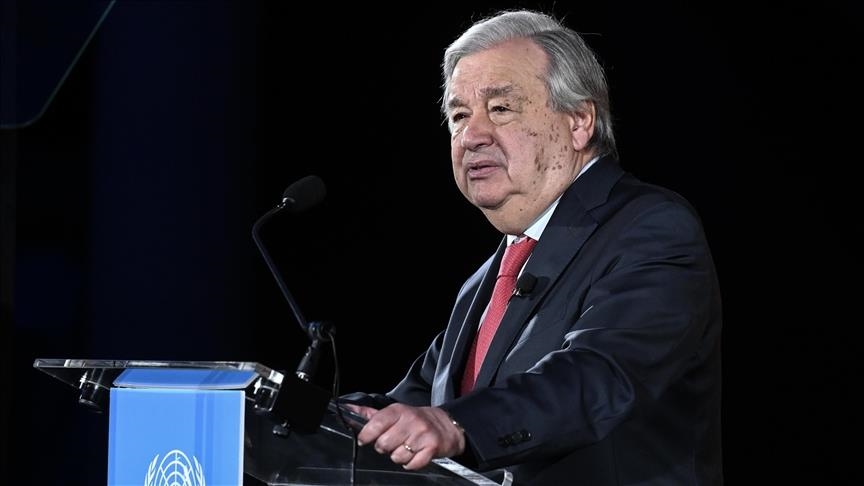United Nations Secretary-General Antonio Guterres expressed deepening concern over escalating verbal hostilities and deadly border clashes between Israel’s military and Hezbollah fighters in Lebanon.
UN peacekeepers are actively working to calm tensions and prevent any potential miscalculations after both sides intensified their rhetoric and raised the specter of a full-scale conflict, Guterres stated on Friday.
“The world must loudly and clearly declare that immediate de-escalation is not just possible but essential,” Guterres emphasized to reporters. He warned that a single rash move or miscalculation could trigger a catastrophe surpassing borders and imagination, stressing that Lebanon must not suffer the same fate as Gaza.
In southern Lebanon, UN peacekeepers from UNIFIL and unarmed technical observers from UNTSO monitor the demarcation line with Israel, known as the Blue Line, to observe and mitigate hostilities.
Hezbollah has launched rockets and drones into Israel, prompting Israeli retaliations with airstrikes and artillery since the conflict began last October, resulting in numerous casualties and displacements along the border.
Israeli leaders, including Prime Minister Benjamin Netanyahu and Defense Minister Yoav Gallant, have previously threatened to treat Beirut similarly to Gaza. Hezbollah’s leader, Hassan Nasrallah, warned of unrestrained retaliation if Israel initiates a major attack on Lebanon.
Analysts are uncertain whether the escalating threats are strategic deterrents or indications of an imminent war. Experts caution against comparing Hezbollah with Palestinian armed groups, citing Hezbollah’s superior training, organization, and weaponry.
Both Israeli and Lebanese commentators foresee the potential for broader conflict, with Hezbollah emphasizing its military capability and Israel facing strategic challenges, including the efficacy of its missile defense systems against Hezbollah’s extensive rocket arsenal.
Israel’s previous conflicts in Lebanon, notably in 1982 and 2006, loom large in discussions, underscoring the political pressures and humanitarian impacts of prolonged conflict on both sides.
Despite efforts by UN peacekeepers and diplomatic channels, tensions remain high, with the situation presenting a critical test for regional stability and international intervention.










